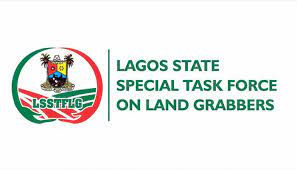
In recent years, land grabbing has become a growing problem in Lagos, Nigeria. This practice of illegal land acquisition has resulted in numerous issues, such as the displacement of local communities, the destruction of natural resources, and increased violence.
This blog post will explore the impacts of land grabbing in Lagos, as well as the potential solutions to this pressing issue. It will also discuss the important role that the government can play in protecting the rights of citizens and preserving the environment.
What is Land Grabbing?
Land grabbing is the act of forcibly acquiring land without the consent of the rightful owner. It is a global phenomenon that has gained traction in developing countries such as Nigeria, particularly in urban areas like Lagos.
It typically involves the use of threats, violence, and intimidation by land speculators, popularly known as “Omoniles” in Lagos, who claim ownership of the land in question.
They often rely on their influence, connections, and local knowledge to manipulate land transactions, often resulting in multiple claims to the same parcel of land. Land grabbing is a form of exploitation that affects individuals, families, and communities, depriving them of their rights, their homes, and their livelihoods.
It also contributes to the social, economic, and environmental problems in urban areas such as Lagos, where rapid population growth and insufficient land use planning have intensified the competition for land.
Overview of Land Grabbing in Lagos
Land grabbing, also known as land encroachment or land seizure, is a prevalent issue in Lagos, Nigeria. It refers to the illegal and forceful takeover of land by individuals or groups, often without the consent or compensation of the rightful landowners.
In Lagos, land grabbing has become a rampant problem, primarily due to the city's rapid urbanization and population growth. The high demand for land for housing, commercial, and industrial purposes has created a fertile ground for land grabbers to exploit vulnerable individuals and communities.
Land grabbing in Lagos is fueled by various factors, including corruption, weak land tenure systems, and lack of enforcement of existing laws and regulations. The perpetrators often collude with influential figures, including government officials and law enforcement agencies, to seize and sell land unlawfully.
The consequences of land grabbing on the affected communities are devastating. Displaced individuals and communities face homelessness, loss of livelihoods, and social disruption. The land grabbers often employ violence and intimidation tactics, leading to a culture of fear and instability in the affected areas.
To combat land grabbing in Lagos, the state government has enacted various laws and established specialized task forces. However, the effectiveness of these measures remains questionable, as land grabbing incidents continue to occur. The legal framework needs to be strengthened, and stricter penalties should be imposed on offenders to deter further encroachment.
In subsequent sections, we will delve deeper into the causes of land grabbing in Lagos, analyze case studies of land grabbing incidents, and propose recommendations to address this pressing issue.
Causes of Land Grabbing in Lagos
There are several factors that contribute to the prevalence of land grabbing in Lagos. One major cause is the rapid population growth and urbanization in the city, leading to a high demand for land. With limited available land and a complex and often opaque land ownership system, individuals and groups resort to illegal means to acquire land for development purposes.
Another cause of land grabbing is the failure of the government to provide adequate and affordable housing for the growing population. This has resulted in a high demand for affordable land for residential and commercial purposes, which in turn fuels the practice of land grabbing.
Furthermore, corruption and weak law enforcement have created a conducive environment for land grabbers to operate with impunity. Some traditional and community leaders collude with land grabbers, selling communal lands to developers without the consent of the community members who own the land.
The lack of effective and transparent land registration and administration systems also contributes to land grabbing. This leads to disputes over land ownership, with some individuals and groups taking advantage of the situation to grab land illegally.
Impact of Land Grabbing on the community
Land grabbing has had devastating effects on the community in Lagos. Firstly, it leads to the displacement of vulnerable populations who have lived on the land for generations. These people are forced to leave their homes, disrupting their livelihoods and uprooting them from their communities.
The loss of land also means a loss of resources for the community. Many of these lands are rich in natural resources, such as fertile soil or access to water sources. When these lands are taken away, the community loses its ability to farm or access clean water, leading to food and water scarcity.
Furthermore, land grabbing often results in the destruction of cultural heritage sites and natural ecosystems. Many communities in Lagos have historical landmarks or important natural habitats that are lost when land grabbers take over the land. This erases the community's history and threatens the biodiversity of the region.
Lastly, land grabbing fuels social tensions and conflicts within the community. As people are forcibly evicted, anger and resentment build up, leading to increased violence and instability. This can further exacerbate existing social and economic inequalities in the community.
Overall, the impact of land grabbing on the community in Lagos is devastating. It not only robs people of their homes and resources but also erodes cultural heritage and perpetuates social tensions. Urgent action is needed to protect the rights of the community and prevent further land grabbing in the city.
Legal framework and measures against Land Grabbing in Lagos
The Land Use Act of 1978 is the primary legal framework that governs land acquisition and ownership in Nigeria. The Act vests all land in each state of the Federation under the control of the state governor, who holds it in trust for the people. It also mandates the governor to issue Certificates of Occupancy (C of O) to individuals or organizations who wish to use land for a specified purpose.
The Lagos State government has taken steps to address the issue of land grabbing in the state. In 2016, the Lagos State House of Assembly passed the Land Grabbers’ Law, which criminalizes the forceful takeover of any landed property, real estate, or infrastructure development in Lagos State. The law imposes a jail term of 10 years for anyone found guilty of land grabbing. The law also established the Lagos State Special Task Force on Land Grabbers to enforce the law.
However, the effectiveness of the law has been called into question, as there have been reported cases of land grabbers continuing their activities despite the existence of the law. There is a need for stricter enforcement and monitoring of the law to curb the activities of land grabbers and protect the rights of property owners in Lagos.
Case studies of Land Grabbing incidents in Lagos
In Lagos, several cases of land grabbing have been reported over the years. One of the most infamous incidents is the case of Otodo Gbame, a waterfront community that was forcefully evicted and demolished in 2016. The government claimed that the community was built on a “no-development zone”, and therefore needed to be cleared for “public interest”. However, residents argue that they had legal rights to the land, and were not given proper notice or compensation before being forced out of their homes.
Another notable case is that of Okun Ajah, a community that was forcibly taken over by land speculators and developers. The residents were left homeless, and many lost their livelihoods. Several other communities, including Ilubirin and Makoko, have also been targeted by land grabbers in recent years.
In each of these cases, residents have struggled to assert their legal rights, and have faced violence and intimidation from land grabbers and security forces. These incidents demonstrate the urgent need for stronger legal protections for communities, as well as more effective enforcement mechanisms to prevent land grabbing.
Recommendations to address Land Grabbing in Lagos
1. Strengthening legal framework: It is essential to review and amend existing land laws to address loopholes and ambiguities that enable land grabbing. Stricter penalties should be imposed on offenders to deter them from engaging in such activities. Additionally, mechanisms should be put in place to streamline land registration processes, ensuring transparency and accountability.
2. Public awareness campaigns: Education plays a crucial role in addressing land grabbing. Communities should be educated about their land rights, the consequences of land grabbing, and the legal avenues available to seek redress. Public awareness campaigns through various mediums, such as television, radio, and social media, can help empower individuals and communities to stand up against land grabbing.
3. Community engagement and participation: Active community participation is key to preventing land grabbing. Encouraging community members to form land committees or associations can help monitor and protect communal lands. These committees can also facilitate dialogue with local authorities, landowners, and developers, ensuring community voices are heard and respected.
4. Strengthening land dispute resolution mechanisms: Effective and efficient mechanisms for resolving land disputes need to be established or strengthened. This can include setting up special land tribunals or courts dedicated to land-related cases, with expedited processes to ensure prompt resolution. Alternative dispute resolution methods, such as mediation and arbitration, can also be promoted to reduce the backlog of cases.
5. Collaboration between government agencies: Improved coordination and collaboration among government agencies involved in land administration and regulation are crucial. These agencies should work together to share information, conduct joint inspections, and monitor land transactions to prevent illegal transfers and encroachment.
6. International cooperation and support: The government of Lagos should seek international cooperation and support to combat land grabbing. Collaborating with international organizations and experts can provide valuable insights and assistance in formulating and implementing effective strategies and best practices.
Addressing land grabbing requires a multi-faceted approach involving legal, social, and administrative measures. By implementing these recommendations, Lagos can take significant steps towards protecting its residents' land rights and preventing further land grabbing incidents.






















